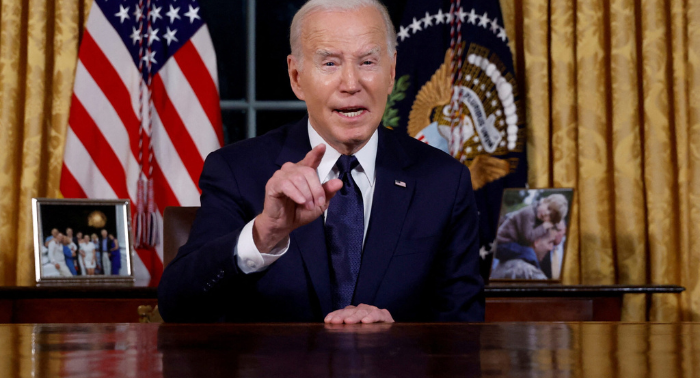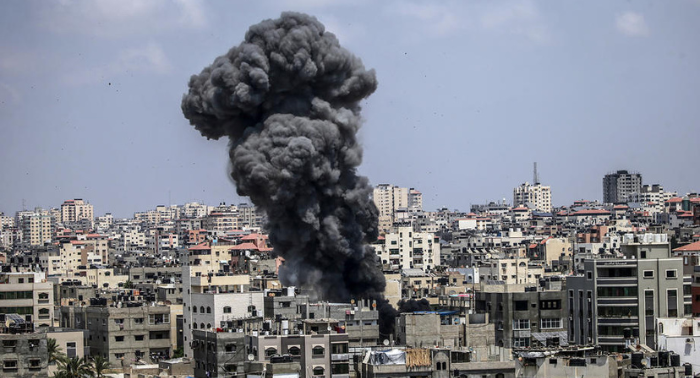The recent attack by Iran-backed militants, resulting in the killing of three U.S. troops and the injury of many others, has intensified the political pressure on President Joe Biden to take decisive action against Iran. This pressure comes despite his reluctance to risk escalating into a broader war.
Experts suggest that Biden’s response options may range from targeting Iranian forces, both within and outside Iran, to a more cautious approach, focusing solely on retaliating against the Iran-backed militants responsible for the attack.
Over the past few years, U.S. resources and attention have shifted towards perceived greater threats from Russia and China, leading to a reduction of intelligence and military presence in the Middle East. However, the repercussions of this strategic shift became glaringly evident since the outbreak of the Israel-Hamas conflict in October, with American forces in the Middle East being targeted over 150 times by Iran-backed groups in various regions, including Iraq, Syria, Jordan, and off the coast of Yemen.
Until the recent attack on a remote outpost near Jordan’s northeastern border with Syria, these strikes had not resulted in American casualties on this scale. This allowed Biden some political room to respond to these attacks by imposing costs on Iran-backed forces without plunging into a direct war with Tehran.
President Biden has indicated that the United States will respond to the attack, though he has not provided specific details.
Republicans have criticized Biden for what they perceive as leaving U.S. troops vulnerable, waiting for an attack like the one that occurred on Sunday. They argue that the only appropriate response to such attacks is a robust military retaliation against Iran’s terrorist forces, both within Iran and across the Middle East.
“The only answer to these attacks must be devastating military retaliation against Iran’s terrorist forces, both in Iran and across the Middle East,” said Sen. Tom Cotton, R-Ark.
Former President Donald Trump, who seeks to challenge Biden in the upcoming presidential election, framed the attack as a consequence of Biden’s perceived weakness and surrender.
The Biden administration has emphasized its commitment to protecting U.S. troops worldwide, but some Democrats have expressed concern that the strategy to contain the Israel-Hamas conflict to Gaza is faltering, as the situation appears to be spiraling into a regional conflict. Rep. Barbara Lee, D-Calif., has renewed calls for a ceasefire in the Israel-Palestinian war.
However, not all Democrats support calls for immediate military action. Rep. Seth Moulton, D-Mass., who served four tours in Iraq as a Marine, cautioned against the rush to war, emphasizing the challenges of deterrence and the potential consequences of military conflict.
Experts also caution against hasty military action, especially if it involves striking Iranian forces within Iran. Such actions could prompt a forceful response from Tehran, escalating the situation and potentially dragging the United States into a major Middle East conflict.
Jonathan Lord, director of the Middle East security program at the Center for a New American Security, suggested that targeting Iran directly could raise questions for the Iranian regime about its survival, representing a significant escalation.
Charles Lister of the Washington-based Middle East Institute proposed that a more likely response would involve targeting a significant high-value militant from Iran-backed groups in Iraq or Syria.
While some have called for action within Iran, experts note that the U.S. should consider the potential second and third-order effects of such a move and whether it is prepared for the consequences, including the possibility of all-out war.
Despite calls for military action, it’s essential to recognize that past strikes on Iranian targets have not always resulted in immediate responses from Iran. The history of U.S. actions against Iranian interests suggests that Iran may ultimately yield to pressure when confronted with a strong and sustained response.
In summary, while pressure mounts on President Biden to respond forcefully to the recent attack, the complexity and potential risks associated with military action against Iran require careful consideration of the best course of action.




